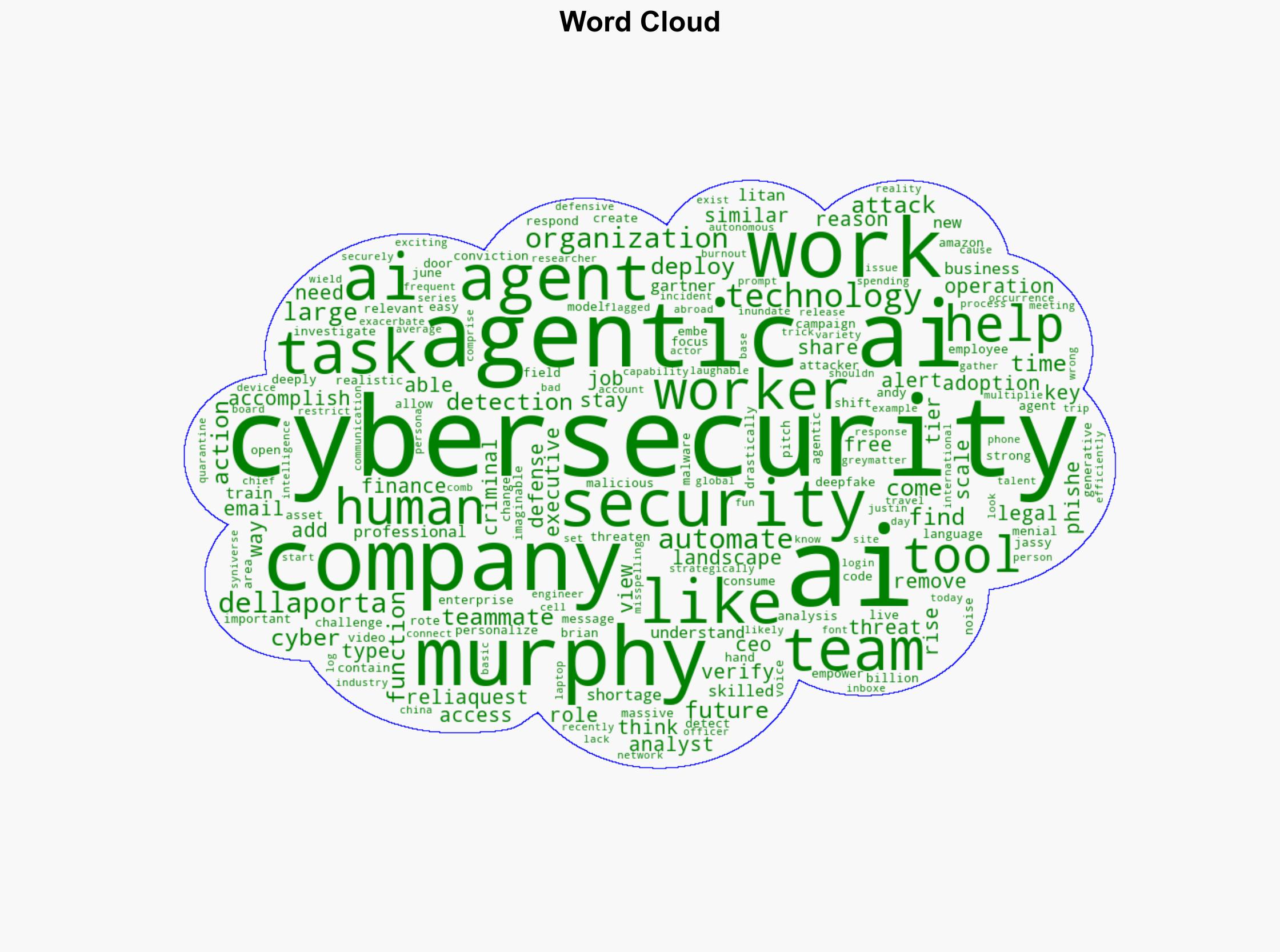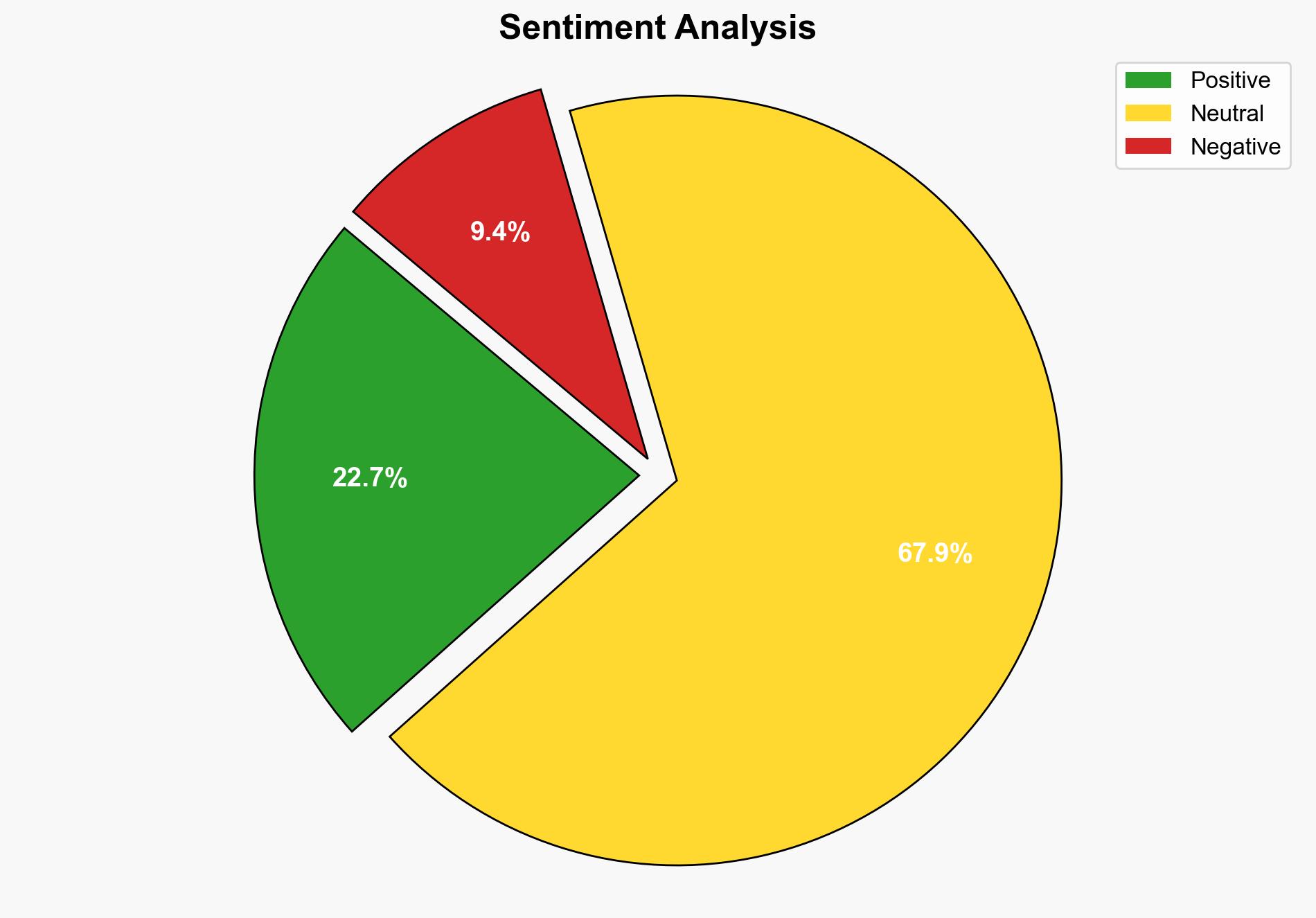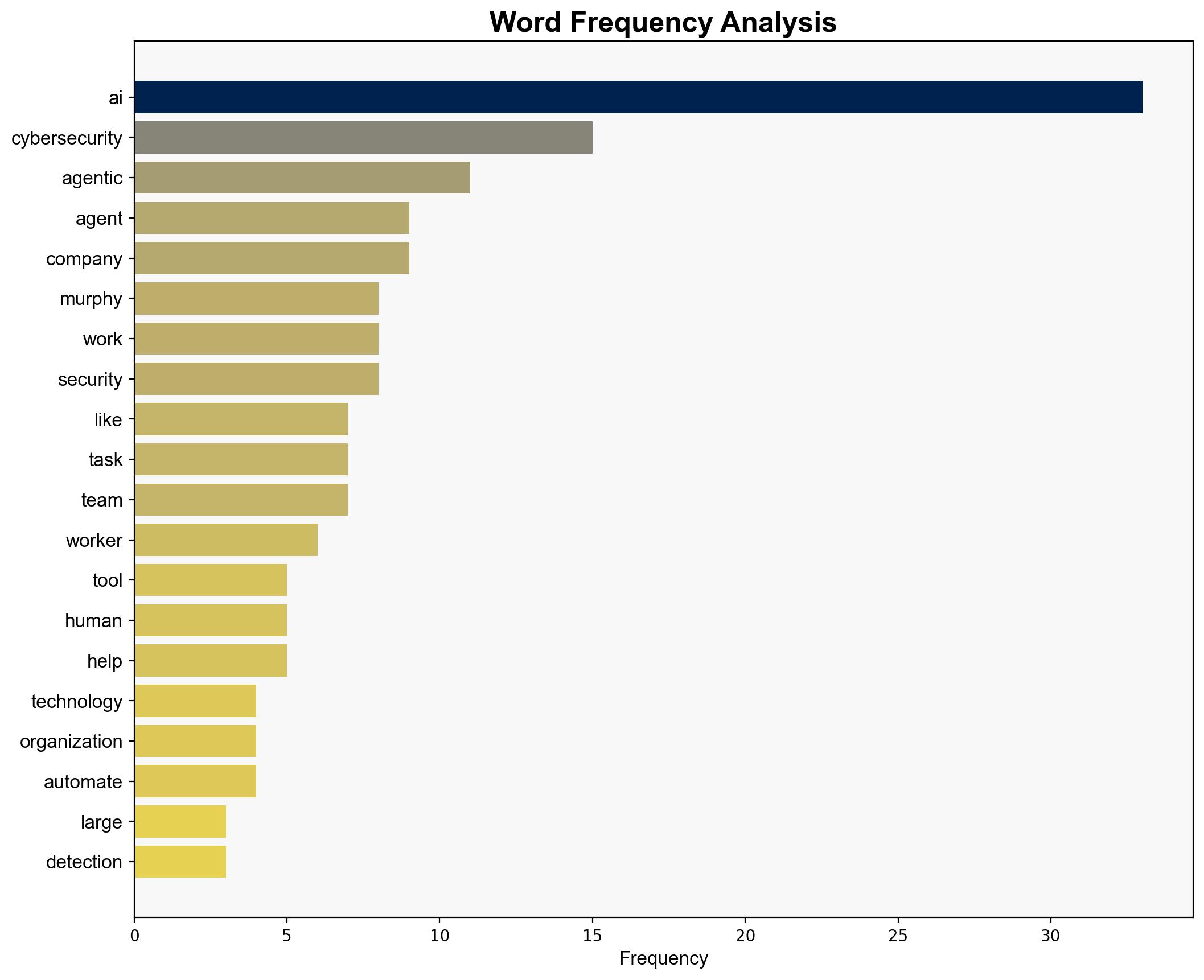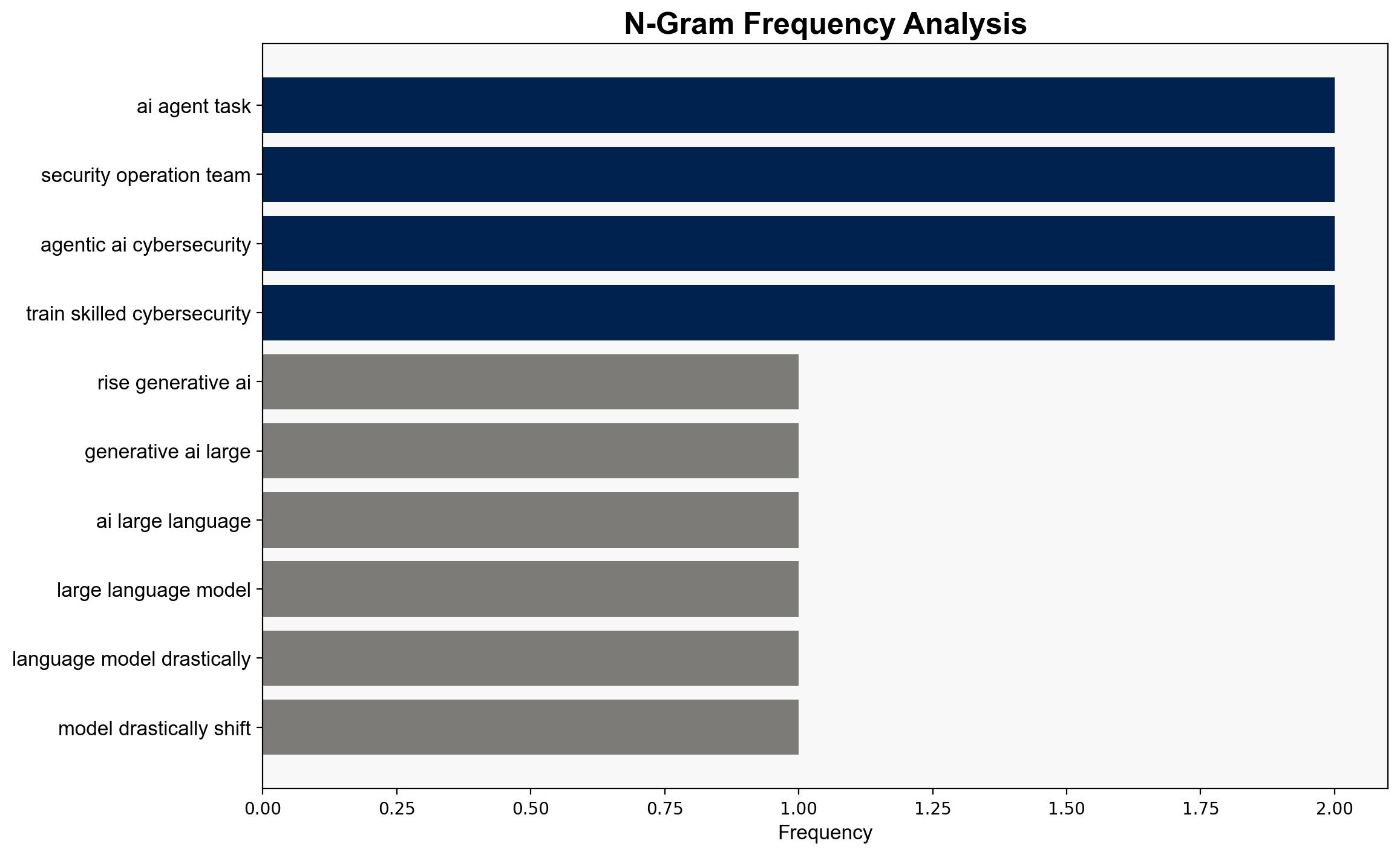AI agents are being drafted into the cyber defense forces of corporations – CNBC
Published on: 2025-08-10
Intelligence Report: AI agents are being drafted into the cyber defense forces of corporations – CNBC
1. BLUF (Bottom Line Up Front)
The integration of AI agents into corporate cyber defense is likely to enhance cybersecurity capabilities significantly, but it also introduces new vulnerabilities. The hypothesis that AI will augment rather than replace human cybersecurity roles is better supported. Confidence level: Moderate. Recommended action: Corporations should adopt a balanced approach, integrating AI while maintaining robust human oversight to mitigate potential risks.
2. Competing Hypotheses
– **Hypothesis 1**: AI agents will primarily augment human cybersecurity efforts, enhancing efficiency and effectiveness without replacing human roles.
– **Hypothesis 2**: AI agents will replace a significant portion of human cybersecurity roles, leading to a reduction in workforce and potential over-reliance on AI systems.
Using Analysis of Competing Hypotheses (ACH), Hypothesis 1 is more supported by the evidence. The source suggests AI is being used to automate menial tasks, allowing human workers to focus on strategic activities, indicating augmentation rather than replacement.
3. Key Assumptions and Red Flags
– **Assumptions**: AI can effectively handle routine cybersecurity tasks without significant errors. Human oversight will remain in place to manage AI systems.
– **Red Flags**: Over-reliance on AI could lead to vulnerabilities if AI systems are compromised. The assumption that AI will not replace human roles could be challenged if economic pressures drive companies to reduce workforce costs.
– **Blind Spots**: The potential for AI systems to be manipulated by adversaries is not fully addressed. The rapid pace of AI development may outstrip current regulatory and ethical frameworks.
4. Implications and Strategic Risks
– **Economic**: Potential cost savings from AI integration could drive further adoption, impacting employment in the cybersecurity sector.
– **Cyber**: AI could both enhance and threaten cybersecurity, as adversaries may also leverage AI for attacks.
– **Geopolitical**: Nations with advanced AI capabilities may gain strategic advantages in cyber defense.
– **Psychological**: Workforce morale could be affected by fears of job displacement, impacting productivity and innovation.
5. Recommendations and Outlook
- Corporations should implement AI with a focus on augmentation, ensuring human oversight to manage AI systems effectively.
- Develop robust cybersecurity protocols to protect AI systems from adversarial attacks.
- Scenario-based projections:
- Best Case: AI integration leads to enhanced cybersecurity and job satisfaction through strategic task focus.
- Worst Case: Over-reliance on AI results in significant vulnerabilities and workforce displacement.
- Most Likely: AI augments human roles, improving efficiency but requiring ongoing oversight and adaptation.
6. Key Individuals and Entities
– Brian Murphy
– Justin Dellaportas
– Andy Jassy
7. Thematic Tags
national security threats, cybersecurity, counter-terrorism, regional focus




